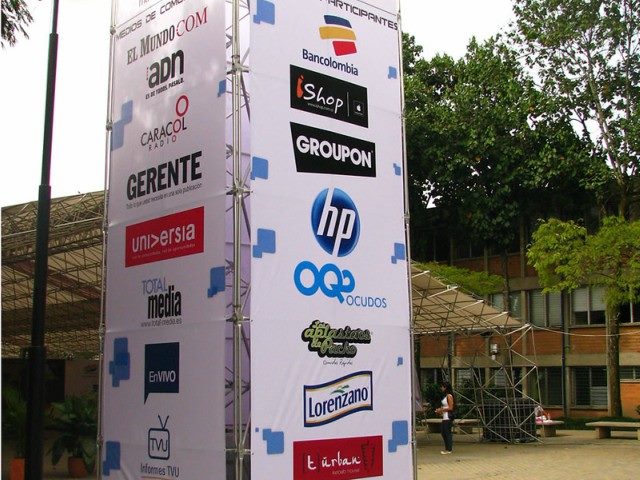6 Marketing Budget Considerations

PHOTO:
EAFIT University
Last year, most marketing executives didn’t think budget cuts were on the horizon for 2020. In fact, according to the Gartner CMO Spend Survey 2019-2020 published in October 2019, only 18% of survey respondents thought they would face budget cuts in the next year.
Of course, no one could have predicted a few months later that those same marketers would be facing the COVID-19[feminine] global health pandemic. Marketers naturally deal with a different playbook: delivering content with different tones, debating campaign timing, or perhaps even more drastic measures like marketing with a smaller team and reduced budgets. Most giant advertisers skip ads or delay campaigns, after all, depending on the Report of the World Federation of Advertisers this month. He revealed that 81% of marketers at large multinationals will postpone planned advertising campaigns and 34% with delays of one to two months. Airbnb cut all marketing budget to save $800 million.
Recognize what is essential
Now is probably the time for many marketers to look for ways to reduce their expenses. “The prudent thing to do in any economic crisis is to ensure that spending is controlled and in many cases reduced,” said Anita Brearton, founder and CEO of CabinetMthat helps organizations manage and utilize marketing technology usage and spend.
“In marketing, that means making sure you have the essential set of programs, people and technology in place to meet today’s needs and that the foundation is there to fuel growth as the economy recovers. .”
Related article: Marketing in times of crisis
Tackle the obvious: reduce the offline
It’s an unusual time in that the economic crisis is not just fiscal, but fueled by a pandemic that is changing consumer behavior and the way they buy. For marketers, this adds another layer of complexity, according to Brearton. But it also means making sure you have some obvious expenses under control. “In this changed environment, it’s clear that there is a need to reduce offline marketing spend: events, billboards and direct mail,” Brearton said. “Once we’re back in the office, billboards and direct mail will make sense again. It is too early to predict how long it will be before we all feel comfortable attending big events again. Once you’ve gone beyond the obvious, the focus should be on refining what’s in place.
How will your consumers feel?
Price Glomski, executive vice president of the digital marketing agency PMGsaid that one of the most important questions to ask about marketing during a crisis, downturn or cultural moment is: will the employees, associates and partners behind your brand be positively or negatively affected by the decision marketing to take?
And that leads to a question of customer propensity. Glomski quoted the view of Marc Vermut, vice president of marketing solutions at Neustar, who wrote this month in AdExchanger“Propensity modeling becomes particularly valuable in times of uncertainty because it answers a fundamental marketing question: on a scale of 0-100%, how likely is a consumer to buy a product or take a particular action? And what will make them more likely to do so?”
According to Glomski, these questions also concern the consumer when he decides to invest in marketing: is the brand differentiated given the circumstances? Does advertising strengthen the customer relationship or does it take advantage of it? Does your current customer base see the brand as appealing or essential given the times? “In most categories, and especially during a crisis, people want to believe they are making the right buying decision,” Glomski added.
Related article: How CMOs are leading the COVID-19 crisis
Don’t give up on creative work
Although many creatives have already been shot and produced for the rest of the year, some brands are reconsidering their creative work for the second half, according to Glomski. This does not mean that all creative work should be abandoned. “Spend the money,” he said, “on more time-sensitive, dynamic and intentional creations, spending time in creative ideation to ensure the results stand out. Creativity thrives in times of downturn due to the need for agility, redefinition and cultural shifts.”
Master everything related to technology and marketing skills
Brearton said she continues to be amazed at how many companies aren’t on top of all the technologies they use, the skills of their marketing team, and the performance of their programs and campaigns. “Without that knowledge, I don’t know how you make sensible decisions about what and where to prune,” she said. “With an overview, it becomes easy to identify redundant products, contracts and features.”
Assess your internal skills to identify training needs. “One of the big issues in today’s marketing environment is that platforms aren’t fully utilized, which impacts performance and ROI,” Brearton said. “One of the main reasons for this is the lack of skills. Now that we’re all working from home, it’s a great time for marketers to take online training. Better use of the platform will lead to better performance, and if not, the value of the platform needs to be assessed. »
Lessons from the Airbnb Marketing Movement
Is your company considering a total reduction in marketing? After all, there’s the Airbnb playbook out there, as we mentioned earlier. Ana Andjelic, head of strategy and doctor of sociology and author of The sociology of businessco-author of a piece in Fast Company on April 15 on the Airbnb move, with Jessica Davidoff, serial entrepreneur and founder of a growth and crisis management consultancy Sprezzatura.
Airbnb, an apartment and home-sharing service that has shaken up the hospitality industry, hasn’t cut marketing communications altogether. An email was sent on Sunday morning April 19, demonstrating how hosts help frontline workers among other promotions.
Still, Andjelic and Davidoff wrote that by initially cutting marketing, Airbnb made a mistake. “There is a lesson for all brands here,” they wrote. “How they allocate their marketing budgets right now (and how much they’ve cut them) should reflect the shift from driving demand to maintaining customer relationships. Otherwise, marketers risk losing the connection with their customers, as Airbnb’s ordeal shows. Marketing cuts rob a brand of any revenue streams that still exist, such as through email marketing or social commerce. They also fail to mitigate the damage of a negative impression.
The authors noted that Airbnb later obtained a $10 million relief fund for “super hosts” and is now providing $5,000 to affected hosts and will cover 25% of cancellation fees for hosts. “Regardless,” they wrote, “all the audience can think of is a very human and relatable image of a host shaking in raw anger. Proactive and empathetic marketing action would have helped balance that message.”


